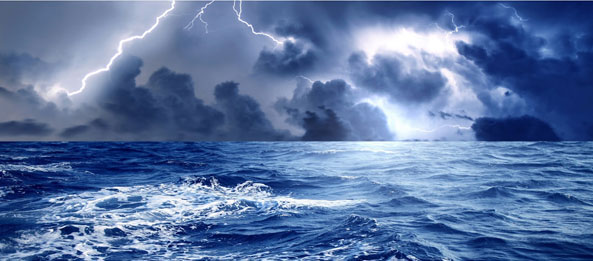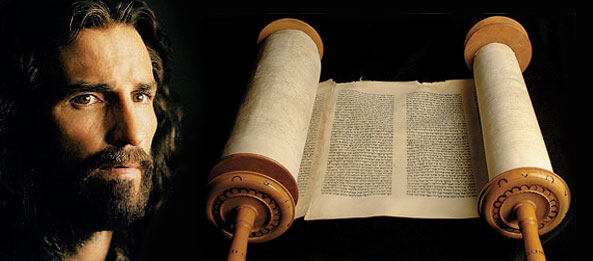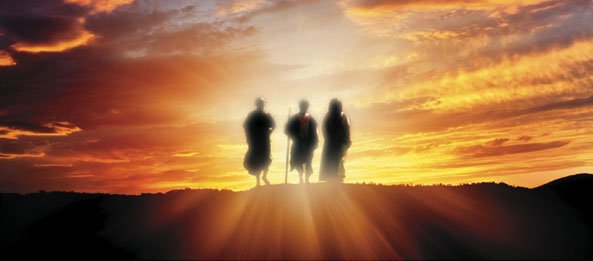Peace in the Storm
Mark 4:35-41 Jesus didn’t just calm storms, he had peace in them
I looked forward to going up the famous Eiffel Tower, who wouldn’t. But as the lift hauled me away from the ground I began to get edgy. When it stopped at its destination and I walked out onto the platform an icy wind hit me reminding me just how high we were. I walked slowly to the rail, looked down and I gasped! It felt weird to be so far from the ground. Everything was tiny, even a football field close to the tower took the size of a business card. Suddenly the reality of the gap between me and the earth hit home and started to feel a bit woozy. I quickly looked away while keeping a firm grip on the railing.
Just then other tourists stepped out of the lift. One guy walked straight to the rail and started waving about “Hey guys, look how far we can see, it’s awesome! Wow, is that a football pitch down there?” The distance to our nearest planet didn’t seem to bother him, he was enjoying Paris and this was the Eiffel Tower! But I was struggling to see the fun. For me the romance was gone.
Fear is a strange thing. It resides in the head and makes you see differently. It doesn’t matter how long the tower has been there, it will fall while you’re on it, right? Fear is deluding and enslaving. It robs you for joy and restricts what you can do. I know of people who spend hours travelling by road because they fear flying in an aircraft. Others won’t even leave their home because they believe crime is right outside their door.
Fear and concern are two very different things. If your child is playing near the top of a cliff you will be concerned and tell them to move away. You know that a child’s judgement isn’t good and the chances of an accident or high. Concern is based on sober calculation and is not driven by sudden emotion. We could say that fear is concern that has been exadurated beyond what is reasonable and real.
It is often said that faith is the opposite of fear. Those who believe in God certainly have an extra resource to draw on when others are panicking. If you believe God cares for you and will turn every situation to your advantage you are ready to accept whatever happens and fear has little space to breathe. With this understanding let’s take a look at a famous story of fear and faith in Scripture.
Jesus calms the Storm
Jesus and his disciples were crossing the Sea of Galilee at night, when a sudden storm arose. The waves grew large and began flushing into the boat. The disciples were afraid, but Jesus was asleep. They woke him up and said ‘Don’t you care if we drown?’
Not everyone will experience a storm on the open sea, but many of us have had storms in our marriages, our health, our work places and our countries. Recently in Kenya we have experienced a number of unsettling acts of terrorism, and sometimes we react just like the disciples, when things get a bit dark or confusing and we start to panic. And while we are panicking we start to wonder where Jesus is. And we call ‘Jesus! Jesus! Where are you? Don’t you care?’ We are in a state, but he is calm and at peace.
Can you imagine Jesus waking up and looking into these wide-eyed faces? Their minds are confused, they cannot think straight, and they are screaming for Jesus to do something. Now you cannot say that a man doesn’t care when he is unconscious on a pillow and hasn’t seen what has transpired, so I can only imagine that it was the lack of emotion in Jesus’ face after he awoke that made them think he didn’t care. But Jesus did care, he just wasn’t worried. And why was he not worried? It was because his life was fully surrendered.
Now, if a few of the disciples had reacted more like Jesus the group would have been calm. Perhaps they would have had some concern, but not total panic.
We need to be careful about the company we keep; some people are always making things seem worse than they are. We’ve seen it recently with these terror attacks in Mombasa. Just because two grenades are thrown doesn’t mean the city is in turmoil. You are still more likely to be killed in a regular car accident than by a grenade. But people talk the situation up to such a level that tourists stop bringing their business to our country. And that is exactly what the terrorists are after.
The situation on the Sea of Galilee was bad but the disciples were making things worse. And Jesus would have not part in their confusion. No, he was calm. He got up and rebuked the storm saying, ‘Quiet! Be still!’ And the storm stopped. Then he looked at the terrified group and said ‘Why are you so afraid? Do you still have no faith?’
Now please note that Jesus connects the word ‘faith’ to the word ‘afraid.’ He did not expect the disciples to speak to the storm and to stop it like he did; he simply expected them to not be afraid. He was looking for men who trusted God. Real faith isn’t about how many miracles you do, it’s about being fully surrendered whether we live or die. Jesus trusted the Father all the way to the cross and to death. Shadrach, Meshach and Abednego were prepared to trust God even if he did not rescue them from the flames. Their lives were in danger, but they did not panic.
Jesus had peace in the storm; he had faith when others had fear. How can we be more like Jesus? Prayer and Mind Management
In Philippians 4:6-7 Paul says, ‘Do not be anxious about anything, but in every situation, by prayer and petition, with thanksgiving, present your requests to God. And the peace of God, which transcends all understanding, will guard your hearts and your minds in Christ Jesus.’
Prayer is the first thing. It is in prayer that we surrender to God and are filled with a supernatural peace. At Gethsemane we see how Jesus gained the strength to weather the storm of crucifixion.
But Paul goes on to say in verses 8-9, ‘Finally, brothers and sisters, whatever is true, whatever is noble, whatever is right, whatever is pure, whatever is lovely, whatever is admirable—if anything is excellent or praiseworthy—think about such things.’
Mind management is the second thing. We need to feed our minds with good thoughts. If we are always thinking about how bad things are we will become programmed with fear. And when we are fearful we amplify the problem and begin to act in ways that are unhelpful to ourselves and those around us.
Below is a painting of a storm. You can see lightning, ragged rocks and water gushing from every angle, but the title of the painting is ‘Peace.’ How can this be? Well, if you take a close look you will see a little bird sitting peacefully on its nest in the centre of the painting. The giant storm is raging but the little bird has peace. If a tiny bird can have peace when things get ugly; you and I can too.







